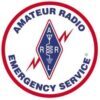FMA-110
Where Do We Fit In The
Incident Command System (ICS)?
In the Incident Command System (ICS), we fit NOWHERE in the organization until requested by the Incident Commander (IC).
There is no position within the ICS for “walk-on” operators! If necessary, the Incident Commander (IC) will contact District 14 ARES leadership and request our help. Our DEC will determine the need and call for operators who are qualified.
If you are available to help with any emergency event, monitor the 147.000 repeater (+103.5 tone); this is where assignments will be made if the repeater is up. Also monitor your unit repeaters for local needs as well as vhf/uhf/hf calling frequencies and listen for emergency/priority calls or the calling of the District 14, ARES net.
DO NOT just show up to work.
Communications falls under the Logistics Section in ICS. Typically, the primary contact at the served agency will notify the primary Amateur Radio leadership individual to advise the nature of the incident, and where to report. This may be to a staging area or to a Command Post area. Operators usually work under either the Logistics Section Chief, the Services Branch Director, or the Communications Unit Leader (COML). One individual may be serving in all three capacities, so Amateur Radio operators serving at a command post need to understand the specific nature of the incident and the structure in place. The command post may be identified by a green light or a green flag. An Amateur Radio operator may be assigned to the Communications officer or they may be assigned as a Technical Specialist in another area. In other words, the ICS structure is determined by the scale of the incident and operators must be briefed on and know the structure, the who-is-who involved in the incident.
Amateur Radio operators may be requested to perform non-ham radio activities and could conceivably be assigned anywhere. If an operator is assigned to a non-ham unit, operators need to comply with the directions of the unit supervisor, understand the mission and report actions back to that unit supervisor. Operators should report to net control when they are being utilized for non-communications functions.
Amateur radio groups deployed as units should be structured into groups of 3 to 5 hams under one Amateur Radio unit supervisor. For example: If a unit has 20 members, the leadership needs to break the unit down into 4 or 5 units. This could be based upon geography (where the units will be deployed), time of day (shifts), specific function (HQ unit, field unit 1, field unit 2, etc), or any other reasonable, manageable division of labor. Then, instead of one Amateur Radio leader needing to get status or provide direction to 20 members, the 1 leader interacts with 4, and those four with 3 to 5 each. This allows for a much quicker and more manageable method of communications and control. Smaller units are also able to be re-assigned and moved more quickly than large units, so the smaller units also allow Incident Command more flexibility in the utilization of overall resources.
Everyone MUST insure that all assignments, delegation and hand-overs are done with explicit statement of intent and explicit statement of acceptance. The most likely problems will occur when duties are assigned/accepted implicitly.
If ALL assignment, delegation, handovers, acceptance etc. are explicit, the potential for misunderstandings are minimized or eliminated. A good technique to insure understanding is to repeat back what you understand the order or instruction to be. This will expose errors before they can become a problem.
Amateur Radio leadership with the likelihood of serving in supervisory roles for an incident should familiarize themselves with the ICS structure, forms, methods and procedures. The ‘higher up’ the pyramid an individual Amateur Radio operator serves, the more important ICS training becomes. It would be mandatory for an Amateur Radio operator assigned to a served agency command post as the Amateur Radio liaison to be fully trained in the Incident Command System. Each Amateur Radio Emergency Services group should have a cadre of individuals “fully trained” in ICS.
ICS courses are available from the Federal Emergency Management Agency (FEMA) on the web at:
www.training.fema.gov/EMIWeb/IS/is100.asp
www.training.fema.gov/EMIWeb/IS/is200.asp
www.training.fema.gov/EMIWeb/IS/IS700.asp
www.training.fema.gov/EMIWeb/IS/IS800.asp
The methods and procedures used by Amateur Radio operators: the use of nets, methods such as packet or ATV, and other training such as Damage Assessment or Fire Weather training are items that remain in place, in use and are unaffected by ICS except for the nature of how information is reported up the chain and how commands are given down the chain. Amateur Radio operators should continue to receive training in these areas in addition to ICS training to expand their already valuable skills used to serve the public via Amateur Radio.
That concludes tonight’s training. Are there any questions, comments or suggested additions to this material?
Thanks, this is (callsign) clear to net control.
Send corrections, modifications, updates or suggestions to k5prs@aol.com
